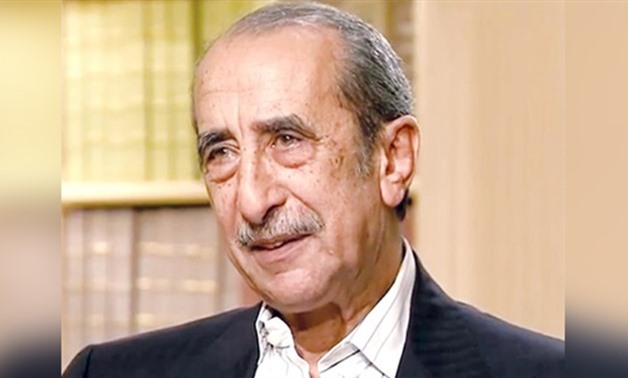
FILE: Late journalist Hamdi Qandil
CAIRO - 1 November 2018: Veteran journalist, news anchor, talk show host Hamdi Qandil passed away on Wednesday at the age of 82 after suffering illness.
The funeral will be held on Thursday in downtown Cairo's Rahman Rahim Mosque in Salah Salim road after noon prayers.
Qandil presented a number of famous TV programs such as Aqwal al-Suhf ("In the Press"), Ra'is el-Tahrir ("Editor-in-Chief") and Qalam Rosas ("Pencil").
Qandil started his journalism career in the 1950s when he wrote for the Akher Sa'a ("Last Hour") magazine at the invitation of legendary journalist Mustafa Amin. In 1961 he began broadcasting a news show called Aqwal al-Suhf ("In the Press") until 1969 when he was appointed director of the Arab Broadcasting Studios Union.
In 1971 he left his post in protest at a government inspection of his technical staff. He later worked with UNESCO from 1974 to 1986, specializing in the field of international media.
In 1987 he co-founded a satellite broadcasting company that later became known as MBC, where he worked for three months before leaving because of political differences with its management. Qandil briefly presented the show Ma'a Hamdi Qandil ("With Hamdi Qandil") for ART, but left amid disagreements between him and his managers regarding his planned interviews with a number of Arab political figures including Libya's Muammar Gaddafi and Iraq's Tariq Aziz.
He returned to Egyptian television in 1998, hosting the current affairs and press review talk show Ra'is el-Tahrir ("Editor-in-Chief"). The program became one of the most popular and respected in Egypt. After apparent trouble with the state censors, Qandil moved the show to Dubai TV in 2004 under the name Qalam Rosas ("Pencil").
The new program was highly watched throughout the Arab world. He was forced to quit Dubai TV after criticizing Arab governments and subsequently hosted the show on the Libyan channel Al-Libia for two months before the Libyan government cancelled it.
He returned to Egypt and wrote for the Al-Masry Al-Youm newspaper and then Al-Shorouk, but his association with the latter ended as a result of a libel suit brought on by then-Egyptian foreign minister Ahmed Abul Gheit in response to a column critical of Egyptian foreign policy written by Qandil in May 2010. The case was later dropped following the 2011 Egyptian Revolution.
Comments
Leave a Comment